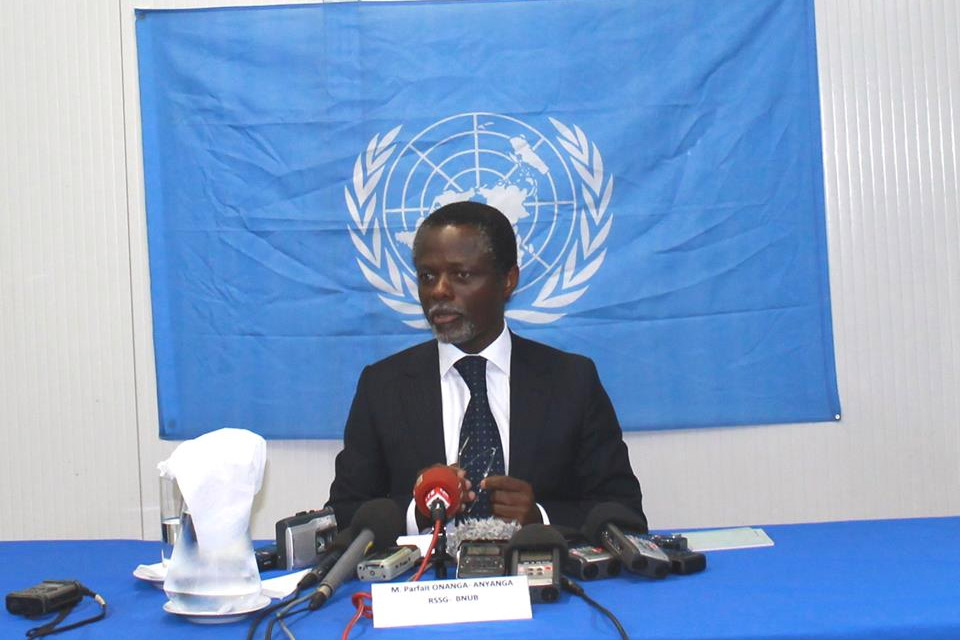Burundi: UN envoy says 2015 elections will be ‘litmus test’ for democratic processes, stability
 Special Representative of the Secretary-General and Head of the UN Office in Burundi (BNUB) Parfait Onanga-Anyanga. Photo: BNUB
Special Representative of the Secretary-General and Head of the UN Office in Burundi (BNUB) Parfait Onanga-Anyanga. Photo: BNUB
While noting Burundi’s efforts to ensure an inclusive political climate ahead of elections in 2015, the United Nations envoy for the country warned today that the socio-political situation there remains characterized by “deep-rooted divergences and persisting mistrust between the Government and opposition parties, and between and within opposition formations as well.”
“There is a lack of genuine political dialogue on major national issues; and the effect of a number of restrictive laws on freedoms of expression and assembly is still a source of controversy and concern, which is disconcerting just nine months away from the 2015 elections,” Parfait Onanga-Anyanga, Special representative of the Secretary-General for Burundi said as he briefed the Security Council.
However, he said there were also reasons to be optimistic, including that the recent calls made by the President of Burundi to his closest advisers, in particular to the Minister of Interior, to ensure authorized political parties can freely undertake their activities throughout the country.
“Also, visibly preoccupied by recent unlawful acts perpetrated by youth affiliated to his party, the Chairperson of the ruling CNDD-FDD party publicly condemned such acts and stated that their authors will face justice,” said Mr. Onanga-Anyanga, underscoring that there shouldn’t be any room for political intolerance, violence or impunity.
“These steps must therefore be sustained in order to have a lasting positive impact and help create a conducive environment for free, fair and peaceful elections in 2015,” he said, also noting positively that President Nkunmziza declared that the elections would be “the best the country has ever organized.”
Moreover, opposition parties remain resolute to stay politically engaged and not boycott the elections. “This is very encouraging as the 2015 elections will be the real litmus test for Burundi’s democratic process and stability,” he said.
Emphasizing that none of the challenges facing Burundi are insurmountable, Mr. Onanga-Anyanga said further progress could be achieved by fostering a culture of inclusive dialogue and democracy, based on the principles of mutual respect and tolerance enshrined in Burundi’s Constitution and the Arusha Accords for peace and reconciliation.
“In the short and mid-term, ensuring that the forthcoming elections take place in an enabling environment will be essential. Their credibility hinges on the participation of all Burundians. I remain optimistic that this will be the case,” he said.


